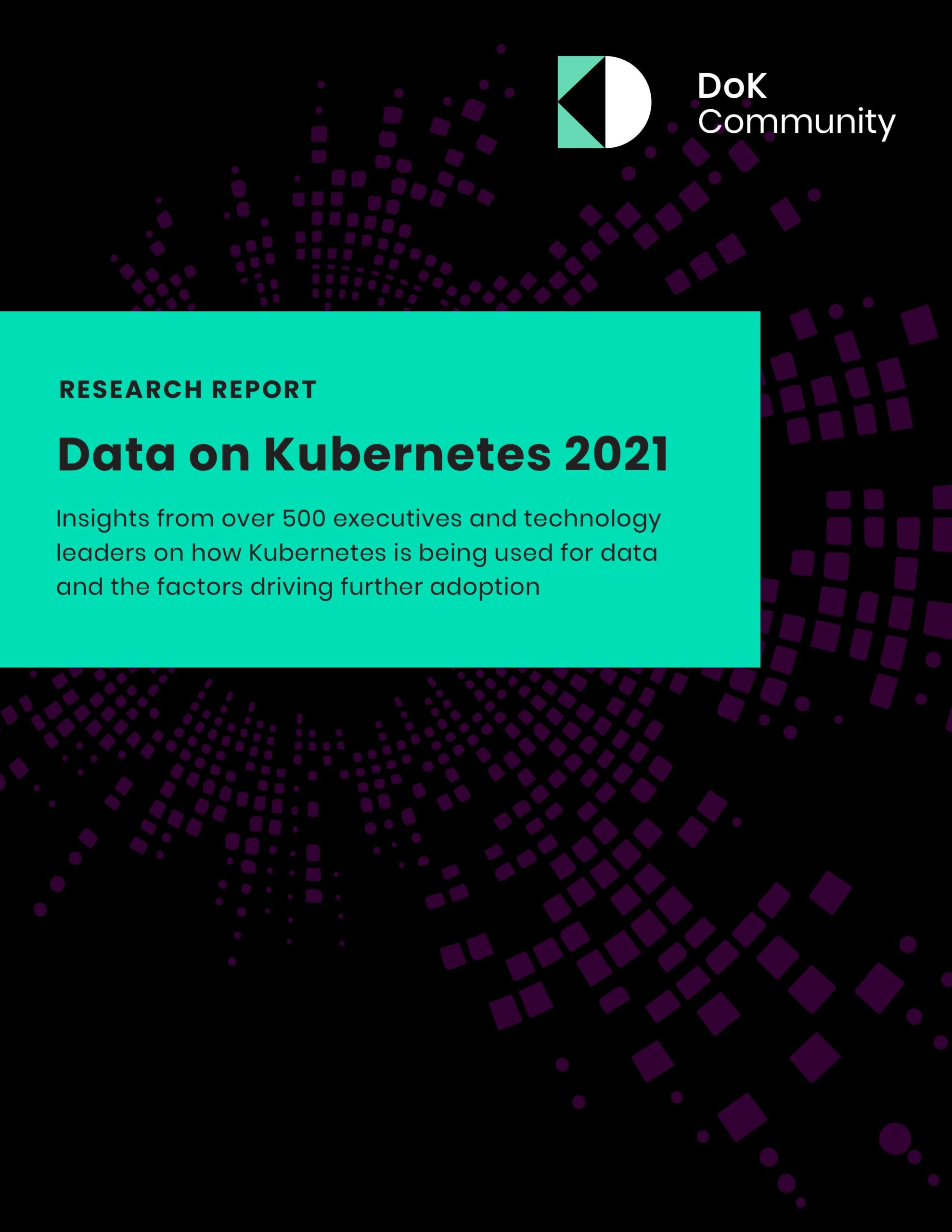Data on Kubernetes 2021 Report
Insights from over 500 executives and technology leaders on how Kubernetes is being used for data and the factors driving further adoption
In September 2021, we surveyed over 500 Kubernetes users to understand the types and volume of data-intensive workloads being deployed in Kubernetes, benefits and challenges, and the factors driving further adoption.
Key Findings
- Kubernetes has become a core part of IT – half of the respondents are running 50% or more of their production workloads on it, and they are very satisfied and more productive as a result. The most advanced users report 2x or greater productivity gains.
- 90% believe it is ready for stateful workloads, and a large majority (70%) are running them in production with databases topping the list. Companies report significant benefits to standardization, consistency, and management as key drivers.
- Significant challenges remain. As they seek to expand their data on Kubernetes footprint, enterprises find a lack of integration and interoperability with existing tools and stacks; skilled staff; quality of Kubernetes operators; and trusted vendors.
- Business demands are creating pressures for further adoption. The increasing importance of real-time data to competitive advantage will sharpen companiesʼ need to run data on Kubernetes. A majority believe standards will improve data management and that data should become declarative.


